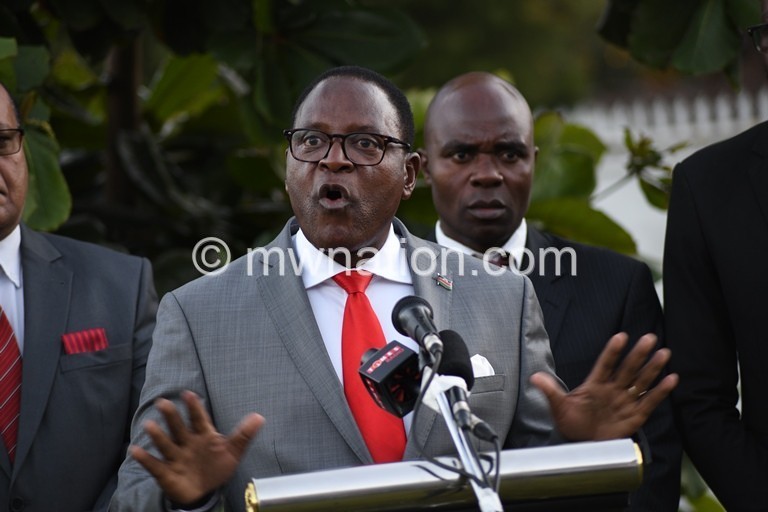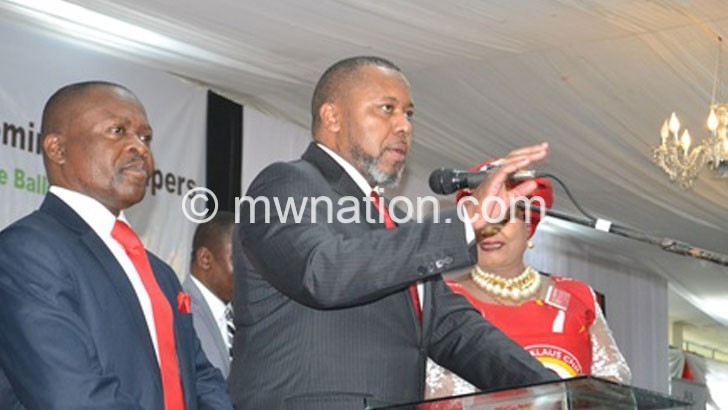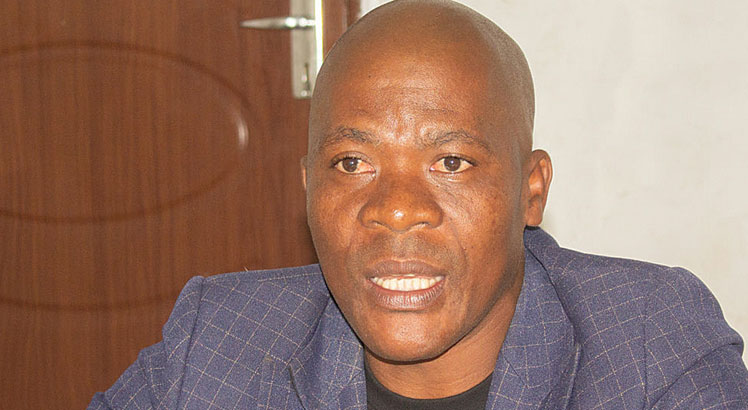Political promises’ honeymoon over
Political leaders will no longer have the luxury of making unilateral promises during the campaign period as the National Planning Commission (NPC) plans to align party manifestos to the country’s Vision (National Transformation 2063).
But a political analyst has cast doubt on the practicality of the move, arguing that implementation of the vision would still face hurdles if the manifestos are not aligned with the national budget.

In an exclusive interview, NPC director general Thomas Chataghalala Munthali told Nation on Sunday that the new country’s Vision (National Transformation 2063)—that will succeed Vision 2020—will undergo extensive consultations, including with political parties and the masses.
During the 2019 tripartite elections voters laughed off some of the promises political parties were making, including turning Malawi into Singapore in five years, creating one million jobs within a year, or bringing bullet trains into the country.

Said Munthali: “The NPC will ensure that political party manifestos align to the country’s Vision [National Transformation 206], which will succeed Vision 2020. We will then sensitise the masses during electoral cycles that any political party campaigning in their areas, defines ‘how’ they will meet their Vision aspirations.”

He said NPC will; hence, ensure that evidence-based strategies, which will operationalise what the popular party has promised the people in line with the long-term vision, are devised to effectively support the country’s socio-economic transformation agenda.
Munthali said NPC has a number of good plans in place, which just need implementing and learning what is working for scaling-up and building necessary capacities for those that are lagging.

“Key, too, is prioritisation of resource allocation. We need, as a country, to focus on few but impactful initiatives having multiplier effect and high value for money. We also need to make sacrifices for long-term wealth-creating investments which can put us on a self-reliant path—investments such as in energy, ICT, sound education and health systems,” he said.
Munthali, however, said ordinary Malawians were not contributing optimally to the country’s development, partly because people have built a mind-set of looking up to government and donors for support.

“We need to recognise that harnessing the wealth of this country will require a collection of each one of us putting in our efforts and energies,” he observed.
Munthali said the notable benchmarks to see whether the country was developing was by, among others, measuring the quality of life of an average Malawian household having adequate nutritious food all the time, having access to quality education and health facilities that have the necessary equipment and personnel, having a secure environment, having a decent job or sustainable income, and having a good durable house.
“While it will be good for us to rank among the upper middle income bracket come 2063, these are the markers of prosperity with or without attaining the middle income status which can sometimes mask huge inequalities,” he said.
UDF publicist Ken Ndanga said the whole essence of political parties having manifestos was to align them with the national vision but politicians tend to promise things that are outside the national vision and policies.
“Political manifestos are supposed to compete on strategies the political parties would meet the national vision,” he said.
Ndanga said Malawi politics was full of self-serving political parties and individuals that go out and make promises that cannot be achieved using the national vision and policies.
Social commentator Humphreys Mvula said the establishment of NPC was to do away with party manifestos and adopt a national vision.
“Political parties will be fighting on the implementation. There will not be promises such as Shire waterway if it is not in the national vision. Of course, there will be short and long-term projects.
“This means there will be no political party that will be owning a single project,” he said.
But Chancellor College political science lecturer Ernest Thindwa said it would be a waste of time trying to convince political parties to align their manifestos with the national vision.
Thindwa argues that political parties could still promise people the moon and fail to deliver on the promises anyway.
He said the best approach was to align the national vision to national budgeting; hence, political parties in power should only be implementing plans that are in vision.
“Parliament should have the powers to reject any developmental plan that is not aligned with the national vision. To convince political parties to align manifestos to the national vision would be a tough job,” said Thindwa.





